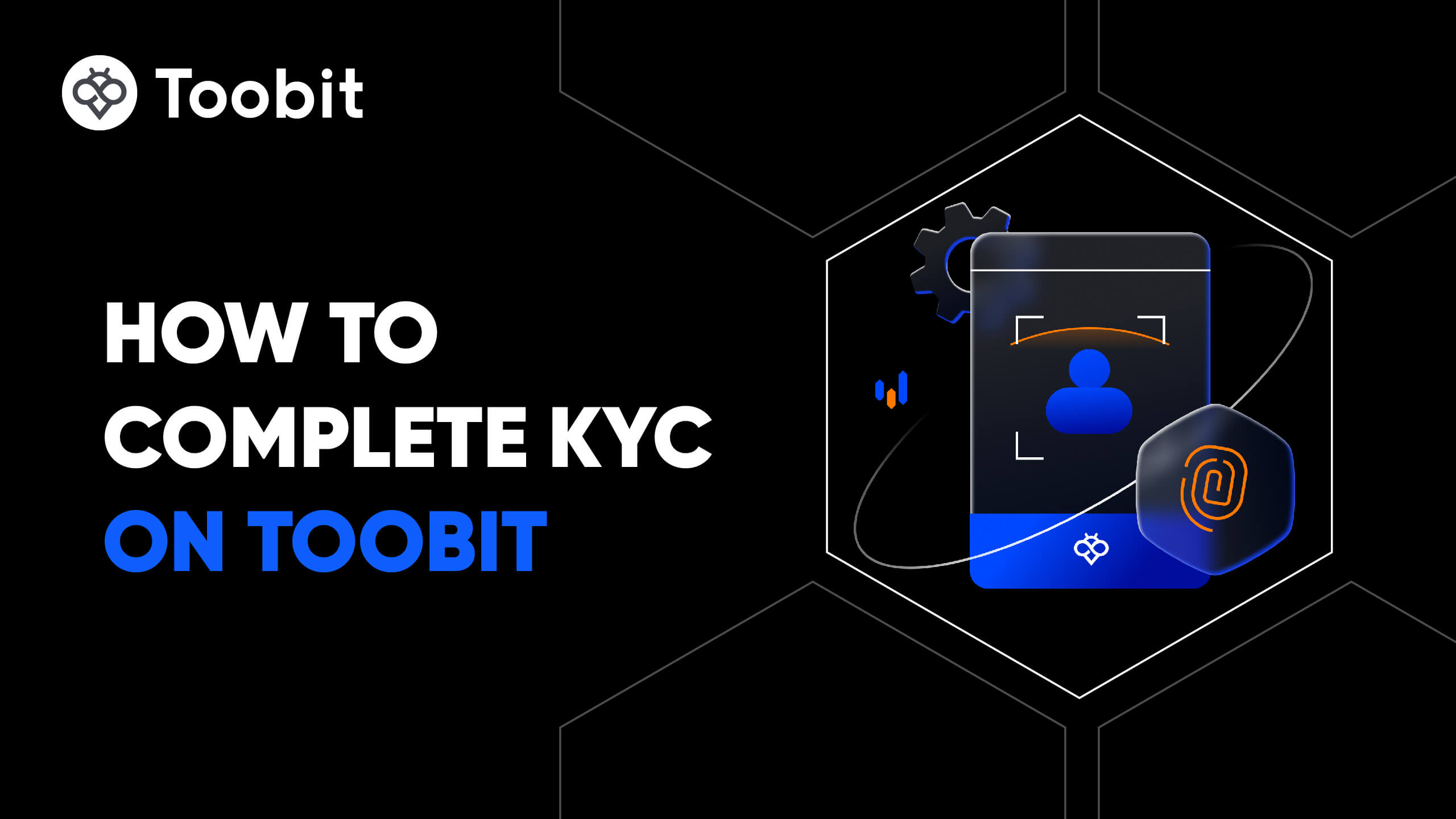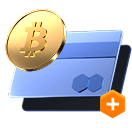--USD+0.00%1D
截至今日 --(UTC+0),Hooked Protocol (HOOK) 在 undefined 的價格為 -- USD。
Hooked Protocol兌USD價格實時走勢圖(HOOK/USD)
Hooked Protocol 市場資訊
價格表現(24小時)
24小時
24小時最低價 --
24小時最高價 --
歷史最高價
4.062533059080115
價格變化(24小時)
+0.00%
價格變化(7日)
--
市值排名
#1061
市值
7,395,964.840918339
24小時成交量
2.92M
流通供應量
283.58M
最大供應量
--
總供應量
500.00M
鏈接
Hooked Protocol 即時價格(今日 USD)
即時 Hooked Protocol 價格為 --,目前市值為 7,395,964.840918339。Hooked Protocol 價格在過去 24 小時上漲了 0.00%,24 小時交易量為 2,925,862.29198574。HOOK/USD(HOOK 對 USD)兌換率會即時更新。
1 個 HOOK 現值多少 ?
目前,Hooked Protocol (HOOK) 對 的價格為 --。你現在可以用 USD 購買 1 個 HOOK。在過去 24 小時內,最高的 HOOK 對 USD 價格為 --,最低的 HOOK 對 USD 價格為 --。
關於 Hooked Protocol(HOOK)
Hooked Protocol 是一個透過區塊鏈技術支援虛擬資產流通與交換的智慧合約協議,為開發者提供可靠、安全、可追溯的虛擬資產管理和使用方式。
Hooked Protocol 價格歷史
時間
價格變化
最低價格
最高價格
24h
+0.00%
--
--
0d
+0%
$0
$0
0d
+0%
$0
$0
0d
+0%
$0
$0
為什麼 Hooked Protocol 的價格總是波動?
哪些因素會影響 Hooked Protocol 價格的表現?
全球 Hooked Protocol 價格
目前 Hooked Protocol 在其他貨幣中的價值是多少?最後更新時間:--(UTC+0)。
如何購買 Hooked Protocol
建立你的免費 Toobit 帳戶
使用你的電子郵件地址/手機號碼與居住國家在 Toobit 註冊,並建立強密碼來保護你的帳戶。
驗證你的身份
輸入你的個人資料並上傳有效的照片身份證件來驗證你的身份。
新增付款方式並購買 Hooked Protocol(HOOK)
在驗證您的 Toobit 帳戶後新增信用卡 / 金融卡或銀行帳戶。使用各種付款方式在 Toobit 上購買 Hooked Protocol。
交易 HOOK 永續合約
成功註冊 Toobit 並購買 USDT 或 HOOK 代幣後,您即可開始交易衍生品,包括 HOOK 合約與槓桿交易,以提升收益。
透過跟隨專業交易員參與 HOOK 跟單交易。
註冊 Toobit 並成功購買 USDT 或 HOOK 代幣後,您也可以開始跟單交易,關注專業交易員。
我可以在哪裡購買 Hooked Protocol?
在 Toobit app 上購買加密貨幣
幾分鐘內註冊完成,即可使用信用卡或銀行轉帳購買加密貨幣
在 Toobit 交易
將你的加密貨幣充值至 Toobit,享受高流動性與低交易手續費。
影片區 — 快速驗證,快速交易

如何在 Toobit 完成身份驗證並防範詐騙
- 1.登入你的 Toobit 帳戶。
- 2.如果你是 Toobit 新用戶,請觀看我們的帳戶建立教學。
- 3.點擊導覽列右上角的個人圖示,然後點擊身份驗證頁面。
更多
關於 HOOK 的常見問題
什麼是 Hooked Protocol (HOOK)?
Hooked Protocol 位於 Web3 採用的前沿,提供創新的教育娛樂網絡,旨在將下一個十億用戶引入去中心化網絡。Hooked 的使命是通過沉浸式、遊戲化和社交學習體驗加速 Web3 的採用。該平台通過其三個主要業務領域:基礎設施、學院和生態系統,為學習者和開發者提供無縫的入門過程。目前,Hooked 已推出三個值得注意的 dApps 和產品:Wild Cash:一個面向初級學習者的 Web3 問答訓練營,擁有超過 300 萬月活躍用戶。ToDaMoon:一個面向預備學習者的賺取學習直播產品,擁有 100 萬總競賽參與者。Hooked Academy Sensei:一個由 AI 驅動的探索性學習產品,擁有超過 100,000 註冊用戶。Hooked 致力於推進 Web3 入門基礎設施並建立強大的合作夥伴關係以推動廣泛採用。該平台的代幣經濟學圍繞單一代幣 HOOK 結構化,該代幣在生態系統中具有多種功能。這種設計防止了拉高出貨計劃,並確保反映真實價值。HOOK 是 Hooked 生態系統中唯一具有流動性的治理代幣,具有有限的供應和通縮的發行計劃。其長期價值植根於項目的可信度和用戶信心。HOOK 代幣用於多種用途,包括社區治理、鏈上活動的燃氣費、質押獎勵、社交地位信號以及支持生態系統內的有價值創新。通過其學院、基礎設施和生態系統,Hooked 旨在革新 Web3 教育並顯著擴大 Web3 用戶基礎。如何購買 HOOK
要購買 HOOK,您可以遵循以下一般步驟:1. 選擇加密貨幣交易所並創建帳戶首先選擇一個支持 HOOK 交易的知名且可靠的加密貨幣平台。您也可以在 Toobit 上購買 HOOK。註冊。2. 完成驗證(非必須):閱讀我們的如何在 Toobit 上完成身份驗證指南以獲取更多信息。3. 存入資金:將資金存入您的 Toobit 帳戶。這可以通過信用卡/借記卡或您的加密錢包完成。4. 導航至 HOOK:一旦您的帳戶資金到位,導航至平台的市場部分。5. 購買 HOOK:在可用的加密貨幣列表中找到 HOOK。下訂單。閱讀我們的如何在 Toobit 上購買加密貨幣指南以獲取更多信息。如何出售 HOOK?
您可以在 Toobit 上將 HOOK 賣給 USDT。閱讀我們的指南 如何在 Toobit 網站進行現貨交易 以獲取更多信息。現在HOOK的價格是多少?
您在尋找HOOK的價格嗎?在Toobit上,實時更新的HOOK價格。如何在 Toobit 提取 HOOK?
您可以在 Toobit 將 HOOK 和其他加密代幣提取為 USDT。閱讀我們的如何在 Toobit 提取加密貨幣指南以獲取更多信息。Hooked Protocol 的創始人是誰?
Hooked Protocol 團隊由三位經驗豐富的專業人士領導:Jason Y.(創始人)、Mike Y.(首席技術官)和 Jess L.(首席營銷官)。創始人 Jason Y. 擁有十年的增長策略和消費者互聯網專業知識,曾與 Uber 和 Meta 等行業巨頭合作。首席技術官 Mike Y. 是一位經驗豐富的工程師,擁有大規模金融服務和消費產品開發的強大背景,為 Hooked Protocol 提供堅實的技術領導。首席營銷官 Jess L. 在行銷、策略和業務發展方面有著卓越的成就。她的經驗包括在 Uber 和 Google 等矽谷領先科技公司擔任職務。這三位領導者共同致力於推動 Hooked Protocol 的增長和成功,包括 HOOK USDT 及其生態系統的發展。Hooked Protocol (HOOK) 可以用於什麼?
HOOK 代幣是 Hooked Protocol 的核心,提供一系列增強其在生態系統中價值和功能的用途:治理:HOOK 作為 Hooked Protocol 的治理代幣。代幣持有者可以使用 HOOK 對提案進行投票,影響影響生態系統的決策,確保社區積極參與塑造平台的未來。燃料費:在 Hooked Protocol 中,HOOK 被用作所有鏈上活動的燃料代幣。這包括在卷積基礎設施上的交易以及未來在 Hooked 平台上構建的去中心化應用程序 (DApps)。HOOK 作為燃料代幣的角色支持網絡上的無縫經濟運營和交易。訪問和激勵:持有 HOOK 代幣可參加獨家社區活動和限量版 NFT。這種用途不僅授予特別權利,還作為社區中的地位象徵,激勵代幣持有和參與。質押獎勵:HOOK 提供質押激勵,獎勵為網絡安全和穩定性做出貢獻的代幣持有者。這鼓勵長期持有並支持 Hooked 生態系統的整體健康和增長。創新和生態系統增長:HOOK 對促進生態系統內的創新至關重要。它支持有利於個人用戶和企業的舉措,確保強大的流動性和隨著 Hooked Protocol 成功而增長的代幣價值。通過提供這些多樣化的用途,HOOK 增強了 Hooked Protocol 的功能和吸引力,推動參與並支持平台的長期成功。流通中有多少 Hooked Protocol (HOOK) 幣?
HOOK 是 Hooked Protocol 的原生加密貨幣,旨在促進生態系統內的治理和交易。HOOK 代幣部署在 BNB 鏈上,總供應量為 500,000,000 枚,分配如下:30% 給生態系統和庫房25% 給社群20% 給團隊和顧問20% 給私人銷售5% 給社群銷售(Binance Launchpad 銷售)HOOK 的代幣銷售於 2022 年 11 月 24 日開始,並於 2022 年 12 月 1 日結束,於 Binance Launchpad 平台上進行。HOOK 代幣為 Hooked 用戶提供多種用途:治理:參與平台治理並對影響 Hooked Protocol 的提案進行投票。交易費用:使用 HOOK 支付網絡燃料費。獨家訪問:參加特別活動、獲得獨家優惠和限量版 NFT。遊戲內購買:使用 HOOK 代幣購買遊戲內工具和資產。此外,質押 HOOK 代幣的用戶將獲得 HOOK 獎勵,激勵長期參與和投資於 Hooked 生態系統。Hooked Protocol價格預測指標
移動平均線是預測Hooked Protocol原生加密貨幣HOOK價格的重要工具。這些指標通過平滑特定時期的價格數據,幫助交易者分析價格趨勢並預測未來走勢。移動平均線計算HOOK在指定時間範圍內的平均收盤價,並分成均勻的時期。例如,12天簡單移動平均線(SMA)將過去12天的HOOK收盤價相加,然後除以12,提供近期價格趨勢的清晰圖像。除了SMA,交易者經常使用指數移動平均線(EMA)。EMA更強調近期價格,使其能夠比SMA更迅速地對近期市場變化做出反應。在加密貨幣市場中,最廣泛使用的移動平均線包括50天、100天和200天移動平均線。這些指標有助於識別重要的阻力和支撐水平。如果HOOK價格超過任何這些移動平均線,通常被解釋為Hooked Protocol的看漲信號。相反,如果HOOK價格低於這些移動平均線,可能表明市場的看跌趨勢或疲弱。交易者還利用其他技術分析工具,如相對強弱指數(RSI)和斐波那契回撤水平,以進一步評估HOOK價格的潛在未來方向。如何閱讀 Hooked Protocol 圖表並預測價格走勢?
K線圖因其能夠提供比簡單線圖更詳細的見解而受到交易者的廣泛青睞。為了分析 Hooked Protocol (HOOK) 的價格走勢,K線圖提供了多種時間範圍,允許交易者放大短期波動或識別長期趨勢。流行的K線圖間隔包括1小時、4小時和1天圖,儘管交易者也可能根據需要使用5分鐘和每週圖。例如,1小時K線圖顯示每小時的價格數據,每根"蠟燭"代表該時段內的價格走勢。每根K線顯示HOOK在該小時內的開盤價、收盤價以及最高和最低價格。理解K線的顏色至關重要:綠色蠟燭表示收盤價高於開盤價,表明看漲趨勢,而紅色蠟燭則表明看跌趨勢,收盤價低於開盤價。有些圖表使用空心和實心的K線來代替顏色編碼以傳達這些變化。使用K線圖對於希望準確分析 Hooked Protocol 價格走勢並做出明智交易決策的交易者來說是必不可少的。哪些因素影響Hooked Protocol的價格?
Hooked Protocol (HOOK) 的價格走勢,與其他加密貨幣一樣,主要由供需動態驅動。各種基本事件可能影響這些動態,包括區塊獎勵減半、硬分叉和新協議更新。此外,監管變化、公司和政府的採用增加、加密貨幣交易所被駭等現實世界事件也可能顯著影響HOOK的價格。因此,Hooked Protocol的市值可能在短時間內經歷大幅波動。對於預測Hooked Protocol未來價格的人來說,監控HOOK巨鯨的活動至關重要——這些是控制大量HOOK的實體或個人。由於Hooked Protocol市場相對於傳統金融市場規模較小,這些巨鯨可能對HOOK價格走勢產生相當大的影響。
HOOK/USD 價格計算器
HOOK
USD
1 HOOK = -- USD。當前將 1 Hooked Protocol (HOOK) 兌換為 undefined 的價格為 --。匯率僅供參考。剛剛更新。
Toobit 致力於提供相較於多數主流交易平台更低的交易手續費。您的 VIP 等級越高,享有的費率就越優惠。
幣種排行
暫無數據
幣種資訊及行情數據綜合自 Toobit 本站及 CoinMarketCap、CoinGlass、CoinGecko 等第三方平台,僅供參考,並不構成任何形式的陳述或保證。



